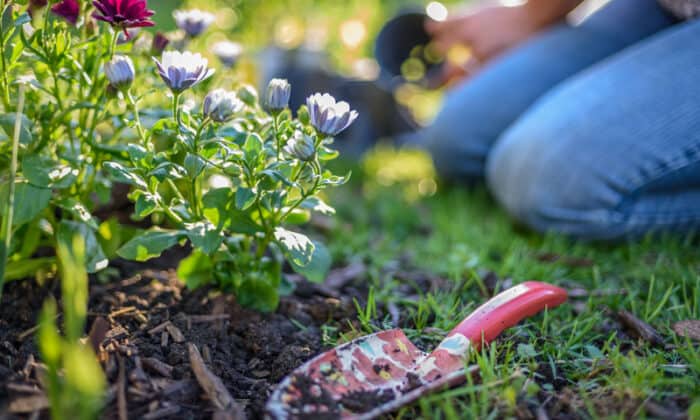
How to Care for Your Lawn in an Environmentally Friendly Way
Nobody wants to experience problems with their lawn. When issues do arise, most of us race to find the quickest and easiest fix. Although many of these solutions will fix our immediate problems, some of them – including certain pesticides and herbicides – cause significant harm to our environment. Thankfully, there are plenty of environmentally friendly options to choose from.
Eco-Friendly Equipment
Gas-powered mowers, edgers, weed whackers, blowers, and trimmers are often used to manicure our lawns. While they usually do the job quickly and efficiently, they’re anything but environmentally friendly. Approximately 10% of all air pollutants originate from portable, gas-powered devices – including the aforementioned tools.
Although battery-powered mowers, edgers, weed whackers, blowers, and trimmers are becoming more popular, they still lack the power and efficiency needed for larger lawns. In cases like this, electric, corded machinery usually makes for a better option – just make sure to avoid cutting through the cord while you’re manicuring your lawn.
Organic Pesticides
Inorganic or synthetic pesticides can be incredibly harmful to your lawn, the environment, your pets, and even your family. The leftover residuals are often carried away in the rain, causing them to seep into nearby, untreated soil, and they can even have a negative effect on beneficial insects as well as the nuisance pests.
Alternatively, most organic pesticides are safe for the environment. This includes lawns, animals, insects, and humans. However, since organic pesticides are often very selective and used to treat specific infestations, correct identification of the pest is critical to ensuring the correct application.
Timing is also an important consideration when applying organic pesticide to your lawn. While neem oil is known to prevent some immature insects from becoming established in your lawn, it’s often useless against their adult counterparts. Likewise, some forms of biopesticide spray require refrigeration before use. Others have a strict expiration date that must be followed in order to provide the maximum benefit.
Organic Herbicides
While organic pesticides can work wonders when dealing with nuisance insects in an environmentally friendly manner, organic herbicides can do the same when dealing with weeds and invasive plant species.
However, you should still take care when applying organic herbicides to your lawn. Although most organic options are perfectly safe for humans and animals, some are not. Organic herbicides still use chemicals – they’re just derived from natural sources instead of synthetics.
More importantly, most organic herbicides don’t discriminate between weeds, invasive plants, and the grass you want to keep. As a result, they’re best used to treat entire sections or patches that you plan on seeding at a later date.
Some benefits of organic herbicides and pesticides include:
- Quickly broken down within the environment
- Leave no harmful residuals
- Carry low toxicity levels
Rainwater Irrigation
Mother Nature provides the easiest and most efficient way to water your lawn. But unless you live in a tropical rainforest, you’re probably not receiving enough consistent rain to keep your lawn looking its best. For many, the solution involves harvesting rainwater and using it to irrigate your lawn during periods of dry weather.
In many cases, it’s as simple as using a barrel or cistern to collect the rainwater that runs off the roof of your house. Gutters can also be installed and positioned to increase the flow if needed. Next time your lawn needs some hydration, you can simply pull from these barrels or cisterns instead of reaching for your hose. Not only will you keep your water bill at a minimum, but you’ll also help offset disruptions to the Earth’s natural carbon and water cycles.
Doing Your Part to Preserve Our Natural Resources
Remember – Earth’s natural resources are finite. Humans have already caused significant damage to the ozone layer with gas-powered machinery and, although we’re not likely to run out of water any time soon, many of us can reduce our monthly utility bills by relying on alternative means of watering our lawns. Little tricks like this – no matter how small or insignificant they might seem – can actually have a huge impact on our environment in the coming years and decades.
